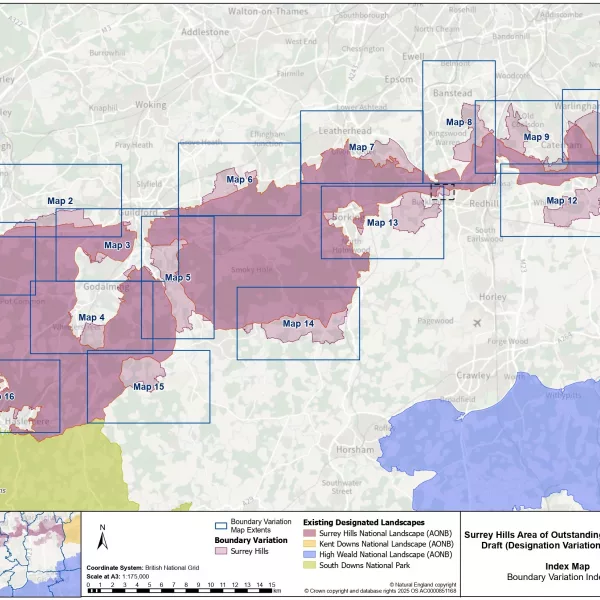
The Government Continues the Theme of Intervention in the Planning Process
One of the key themes to emerge since the General Election is the willingness of the Labour Government to intervene in the planning process. We have previously reported on the Government's interventions in relation to digital infrastructure, with two appeals for hyperscale data centre projects recovered by Deputy PM Angela Rayner. Similarly, the decision by the Energy Secretary Ed Miliband to grant Development Consent Orders (DCOs) for three large-scale solar farms in the East of England has provided a clear signal of intent.
In the latest development of this narrative, the Deputy PM Angela Rayner has called-in a garden village scheme comprising 8,400 units on unallocated land near Sittingbourne in Kent. The call-in occurred on 7 November 2024, approximately three hours before the scheme was set to be rejected at Planning Committee in Swale Borough Council. In what could be described as a remarkable turn of events, the call-in is the first intervention seen in the housing sector from the Labour Government.
The garden village scheme is made up of two applications. The first application (ref. 21/503914/EIOUT) is an outline proposal for the phased development of up to 7,150 homes and commercial uses on over 570 hectares at Highsted Park. The second application (ref. 21/503906/EIOUT) is an outline proposal for the phased development of up to 1,250 homes, open space and green infrastructure on approximately 98 hectares at Highsted Park.
Both proposals were recommended for refusal for the reasons set out in the Committee Report, including the impact on Kent Downs National Landscape, heritage assets, ancient woodland, potential archaeological remains, protected habitats, landscape and other impacts resulting from the proposals. The planning officers concluded that the harmful aspects of the development proposals would be in breach of the development plan and that the benefits would not amount to material considerations sufficient enough to outweigh the breach of policies in the development plan. This officers’ recommendation included an assessment of Swale Borough Council’s five-year housing land supply, which was concluded to be 4.1 years. Maidstone Borough Council joined in rejecting the proposals along with over 700 public objections.
Swale Borough Council assert that they will defend their position and robustly explain the council’s reasons for recommending refusal.
The decision to call-in a housing scheme of this scale is another signal of intent from the Government and the emphasis it is placing on housing delivery. The Housing Secretary previously stated in her ministerial statement on 30 July 2024 that she would not hesitate to use her powers of intervention should it be “necessary to drive progress”. Local populations affected by such scheme may not like it, but there is a common public concurrence, particularly with younger members of the population, that there is a housing crisis in the UK. The Government was elected on the mandate that they would solve this as part of their manifesto agreement, promising the public that they could build 1.5 million new homes over their term.
The Government’s intervention in the planning process demonstrates that there is a willingness to override the decision-making powers at a local level. This is particularly pertinent with major housing schemes, whereby the knock-on effects of the housing delivery will create a stronger economy for local businesses, together with the benefits arising from social and recreational facilities, and highway improvements proposed as part of these major schemes. It may even be seen as a failure of the Government by the wider public to not intervene given their manifesto promises.
It remains to be seen how the decision to call-in such major development proposals will impact on the planning system in the short to medium-term. The larger housebuilders may take this as a sign that the more contentious major schemes, including unallocated land and Green Belt sites, will be backed and supported at national level despite local objections and resistance from local planning authorities. The Government’s proactive approach means that the need for housing delivery is likely to be afforded greater weight than ever before.
Image Source: Quinn Estates
Other news
See all

London Housebuilding: Emergency Measures
The Government and GLA are currently consulting on two documents aimed at stimulating and reviving housing delivery across London, in response to a…...
Read now
Surrey Hills Area of Outstanding Natural Beauty - Boundary Extensions: Last opportunity to make representations
Natural England have given notice of their intention to Vary the Designation Order to include boundary extensions to the Surrey Hills Area of…...
Read now